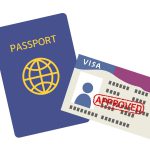公開日時 : 2020年05月18日
更新日時 : 2022年02月24日
Residence Status Categories “Engineer/Specialist in Humanities/International Services” (2)
Previously, we looked at the different types of jobs possible to attain under the residence status of “Engineer/Specialist in Humanities/International Services”, so now let’s take a closer look and see what qualifications are required for this, and some things you need to be careful about. According to Japan’s immigration law, if your academic or work background does not match a profession listed in any of the categories for residence status, you can be refused a working visa.
① For employment in the technical field (system engineering, technological development/design, etc.) or in the humanities (project management, finance, accountancy, etc.), the two following conditions must be met.
- You must have graduated university (including overseas universities and educational institutions such as vocational schools, both abroad and in Japan) and completed a “Rikei” (science/maths-oriented) course in which the major is related to the job you plan to undertake.
Eg.) If you are coming to Japan to find work as an engineer with an electronics manufacturer, you must have completed a bachelor’s degree in relation to mechanical/electronic engineering at an overseas or Japanese university or vocational school.
- You must have over 10 years of experience in the line of work you are aiming to work in.
If you do not have the credentials described in 1), but have related work experience of ten years or more, you are still eligible for a working visa.
Eg.) If you have over ten years of work experience in marketing in another country, but no bachelor’s degree, you are still permitted work in the marketing department of a Japanese enterprise.
② International Services (interpretation, translation, foreign language teaching, trade, overseas business, fashion, interior design, product development, etc.)
For this line of work, the following two conditions must be met.
- Your job must be considered to require a high level of knowledge and sensitivity of foreign cultures (a role which the average Japanese person may find difficult, where foreign nationals have a natural advantage).
- You must have work experience of 3 years or more in the field of work you are applying for.
Eg.) To be permitted to conduct work in overseas business for a Japanese business, you must have over 3 years of work experience in overseas business in a different country.
<Important Points>
- Work experience is not required for translation, interpretation or foreign language teaching jobs if the foreign national has graduated from an educational institution such as university or vocational school. This is regardless of the major with which they graduated.
Ie. regardless of whether one’s major was “Bunkei” (humanities-oriented) or “Rikei” (science/maths-oriented), anyone who has obtained qualifications higher than a bachelor’s degree has the right to obtain a working visa as a translator, interpreter or foreign language teacher.
Eg. If you want to work in a language-teaching institution in Japan, you will be permitted to obtain a working visa for this as long as you have graduated from a degree in third level education, regardless of the major of said degree.
- To obtain a working visa for a job in “International Services” (translation, interpretation, trade, overseas business), a standard level of Japanese is required.
For those who have graduated from a Japanese vocational school, the conditions for eligibility for the working visa are slightly different.
Previous article: 「Residence Status Categories: “Engineer/Specialist in Humanities / International Services” ①」







